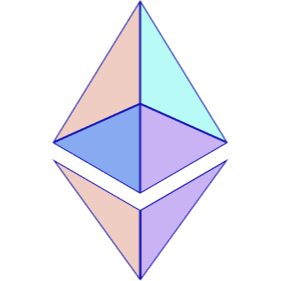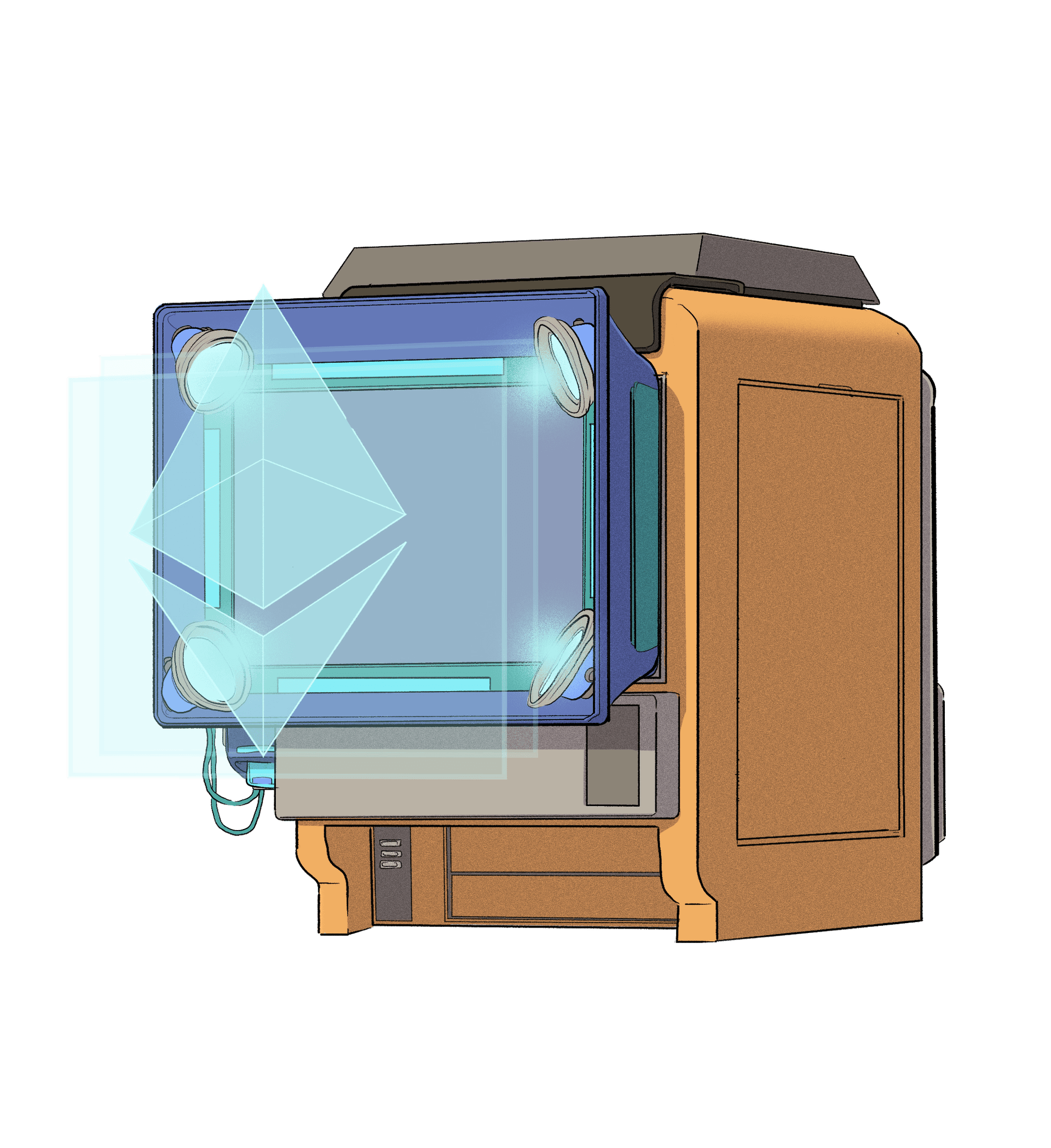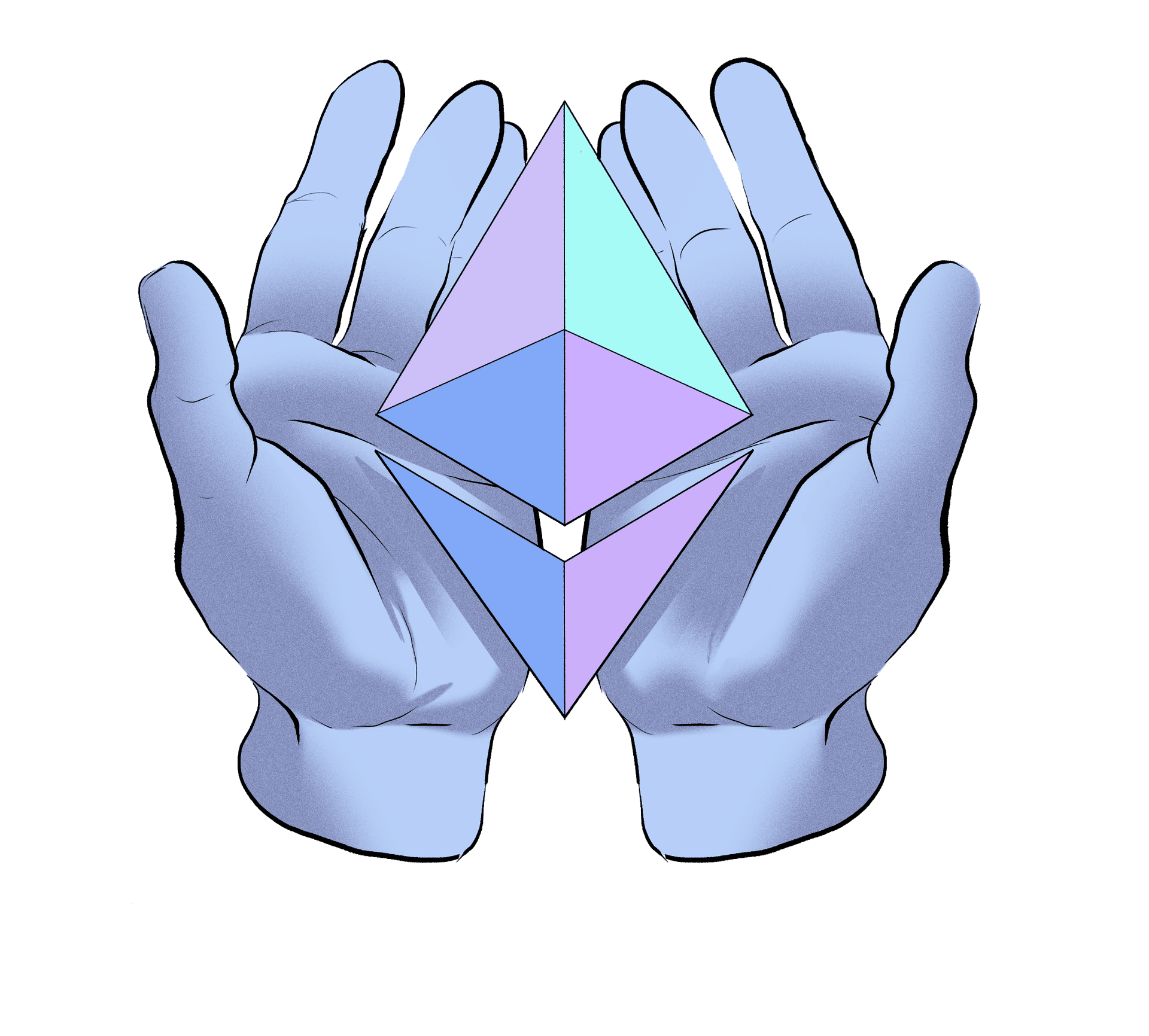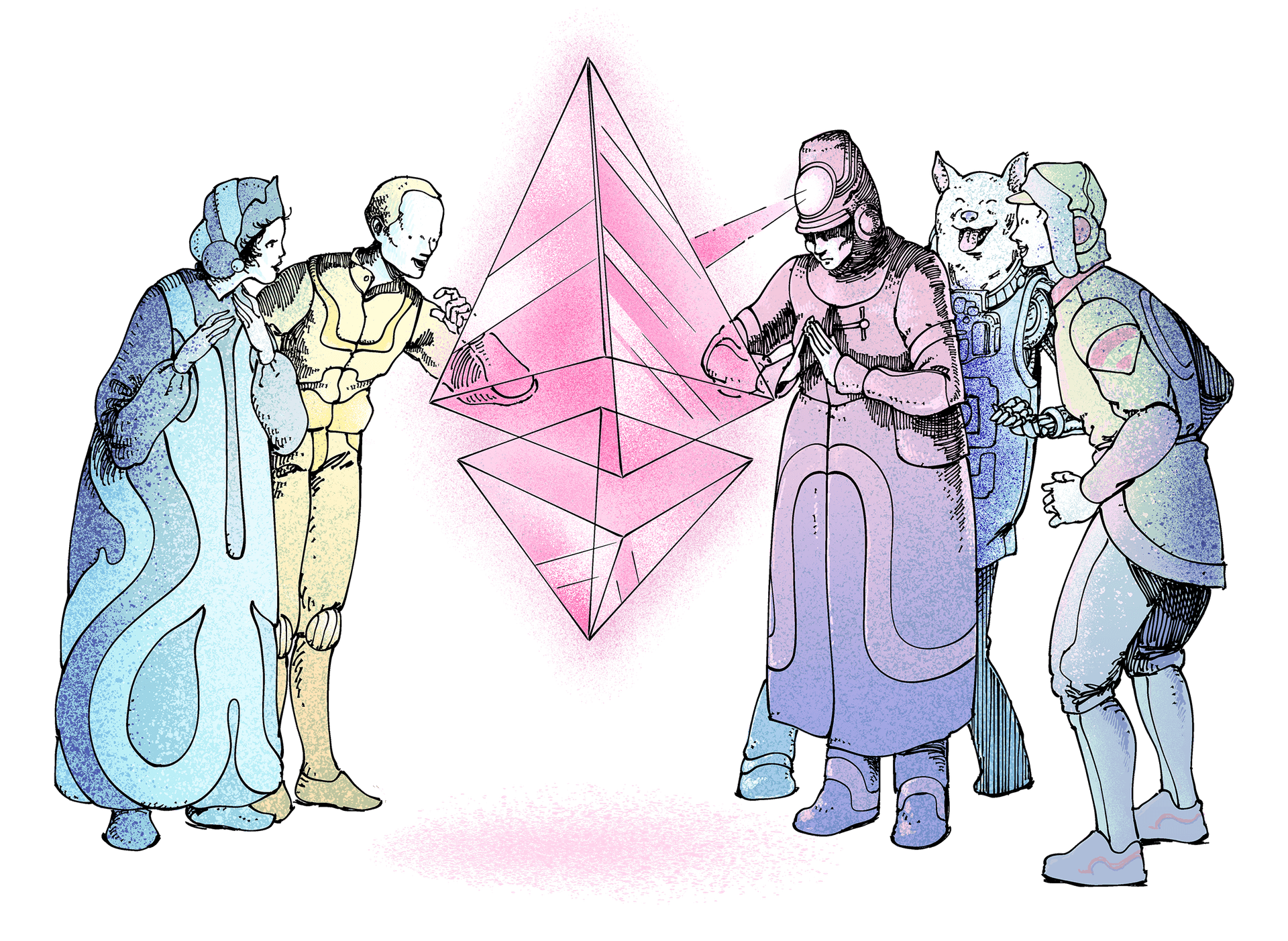Page last update: December 2, 2025
Ether, commonly known as ETH, is the fuel that powers the Ethereum blockchain. Unlike bitcoin, which primarily serve as digital money, ether has multiple uses within the Ethereum ecosystem.
As Ethereum's native cryptocurrency, ETH is used to:
- Pay transaction fees (gas) for using the network and its applications
- Secure the Ethereum network through staking
ETH was introduced in 2015 as part of Ethereum's launch and has since grown to become one of the most valuable assets in the worldopens in a new tab.
For consumers
ETH enables global payments without banks, purchases of non-fungible tokens (NFTs), and access to decentralized finance (DeFi) apps. It's censorship resistant with 24/7 cross-border functionality.
For developers
ETH pays for transaction fees when deploying smart contracts to the Ethereum mainnet. It's also the primary currency used within many applications in the Ethereum ecosystem.
For investors
ETH functions as a store of value and yield-generating asset through staking. It provides exposure to web3 growth and the expanding digital economy.
How to buy ETH
Buying ETH is straightforward with several options based on your needs and location. Always start with a trusted platform offering strong security.
For consumers, buy ETH through cryptocurrency exchanges or wallet apps.
Sidenote
When buying ETH you'll hear "account/address" and "wallet".
- Think of your account like your email address where people send you money.
- Think of your wallet like your email app where you check balances and make payments.
You can purchase ETH with:
- Credit/debit cards instantly but with higher fees
- Bank transfers slower but with lower fees
- PayPal or similar services where available
For businesses, exchanges offer corporate accounts with higher limits, better support, compliance features, volume discounts, and enhanced security.
Other ways to get ETH:
- Receive payments from people you know
- Provide liquidity on decentralized finance protocols
- Stake ETH to earn rewards while securing the Ethereum network

How to send and receive ETH
Sending ETH requires a wallet and recipient address. Enter their address, specify the amount, review the transaction fee, and confirm. Transactions typically arrive in under 30 seconds and cannot be reversed once confirmed.
Receiving ETH requires sharing your Ethereum address or QR code with the sender. Funds appear in your wallet after network confirmation, with most wallets providing notifications.
Need help? Read the How to use a wallet guide.
Sidenote
Only share your Ethereum address with trusted contacts. Since Ethereum is a public ledger, they can view your balance and transactions. They can't access your funds but privacy is recommended.
For larger amounts, consider hardware wallets for added security.
Learn about Ethereum and how it works.How long does it take to send ETH?
ETH transactions typically complete in under 30 seconds. The Ethereum network processes blocks every 12 seconds, though transactions may queue during congestion.
Transactions achieve 'finality' after ~15 minutes, compared to Bitcoin's 60-minute average.
During high network traffic, you can speed up transactions by paying higher transaction fees, placing you ahead in line. Fees are split between validators and a burning mechanism.

How much does it cost to send ETH?
Ethereum transactions require transaction fees paid in ETH. The fee is calculated based on the computational work required (measured in 'gas'), and the network's current demand. The price of gas fluctuates with network traffic, making transactions lower-cost during off-peak periods.
| Transaction type | Live cost range | Estimated gas units |
|---|---|---|
| ETH transfers | $0.0019 | 21,000 gas |
| Swapping tokens | $0.012 - $0.014 | 100,000 - 150,000 gas |
| Complex DeFi/NFT transactions | $0.018 - $0.046 | 200,000 - 500,000 gas |
Enter L2s: Scaling Ethereum
As Ethereum's popularity grows, keeping transaction fees low becomes challenging. Layer 2 (L2) networks address this issue.
L2s like Optimismopens in a new tab and Arbitrumopens in a new tab offer 10-100x cheaper fees while inheriting Ethereum's security. They process transactions offchain and post data to Ethereum.
Think of them as express lanes that provide faster, cheaper transactions alongside Ethereum's main highway.
L2 transfers typically cost less than $0.01, bringing Ethereum to millions more users through integrations with companies like Robinhood, PayPal, and Shopify.

What is the ETH supply?
Unlike Bitcoin's fixed 21 million cap, ETH has dynamic supply mechanics:
- New ETH is issued to reward network validators at a limited rate calculated by the protocol
- A portion of every transaction fee is permanently "burned" (deleted from existence)
- This creates alternating periods of inflation and deflation based on network usage
Expected equilibrium: The system balances network security with long-term value preservation. High usage leads to deflation; low usage results in inflation.
Data sources: Etherscanopens in a new tab, Ultrasound Moneyopens in a new tab
What is the distribution of ETH?
Ownership is widely distributed across tens of millions of addressesopens in a new tab, preventing concentration of control and enhancing decentralization.
A breakdown of ether distribution
- Staked ether: Tens-of-millions of ETH lockedopens in a new tab for network security
- Exchanges: Centralized platforms hold 13-16%opens in a new tab of supply
- Smart contracts: Significant amounts in smart contracts including DeFi protocols
- Ethereum Foundation: Holds less than 0.3%opens in a new tab of supply (down from 9% in 2014)

Who holds the most?
The Ethereum addresses with the highest ETH balances are typically not individuals. The vast majority of ether visible in the "top" Ethereum addresses represents the collective, pooled funds of many different people and entities, not the holdings of a single individual.
The highest-balance ETH accounts typically include:
- The Beacon Chain Deposit Contract: The deposit contract's balance represents all of the ETH that has been staked to help secure the Ethereum network. While this is the Ethereum address with the largest ETH balance, it does not represent an accessible Ethereum wallet account. It is a smart contract that accepts deposits of ETH as the first step to participate in staking, then manages the balances of that ether across the network's active validators.
- Smart contracts: Many of the other high-balance Ethereum addresses represent the smart contracts that power Ethereum-based applications, such as the smart contract addresses for decentralized finance (DeFi) protocols, bridges, or decentralized autonomous organizations (DAOs). These contract balances represent the ether that many wallets have deposited to participate in their application.
- Omnibus accounts: These are large wallets operated by exchanges, platforms, and funds (like Coinbase, Robinhood, or Binance). When a user buys ETH on an exchange, it's often held in one of these massive accounts alongside the ETH held by thousands of the platform's other customers.
You can view a live list of the Ethereum wallet addresses with the highest ETH balances on Etherscan hereopens in a new tab.
Why distribution matters for decentralization
Wide distribution prevents centralized control. True decentralization depends on the number of independent nodes and validators maintaining the network.
What makes ETH valuable?
ETH derives value from multiple sources:
Network utility: All Ethereum transactions require ETH for gas fees, creating consistent demand that grows with network adoption.
Staking rewards: ETH stakers earn yields while securing the network, appealing to both individual and institutional investors.
Store of value: Many view ETH as "digital oil"—a scarce asset with real utility powering the digital economy.
Supply dynamics: Fee burning creates deflationary pressure during high usage periods. Since 2021, millions of ETH have been permanently removedopens in a new tab from circulation.
What is wrapping ETH?
Wrapped ETH (WETH) is an ERC-20 token that represents ETH on a 1:1 basis. Many decentralized apps and L2 networks are built to handle ERC-20 tokens, but native ETH itself is not an ERC-20 token. ‘Wrapping' means locking ETH in a smart contract, and issuing an ERC-20 representation of that locked ETH (WETH), allowing it to be used across any apps and L2s that can only accept ERC-20 tokens.
Common uses include:
- Trading pairs on decentralized exchanges like Uniswapopens in a new tab
- Collateral on lending platforms like Aaveopens in a new tab
- Bidding on NFT marketplaces like OpenSeaopens in a new tab
WETH can be unwrapped back to ETH anytime with minimal fees. The WETH is destroyed, and the ETH it represented is released from the smart contract. Most applications handle the wrapping and unwrapping process seamlessly.
Learn more about Wrapped ETH (WETH)